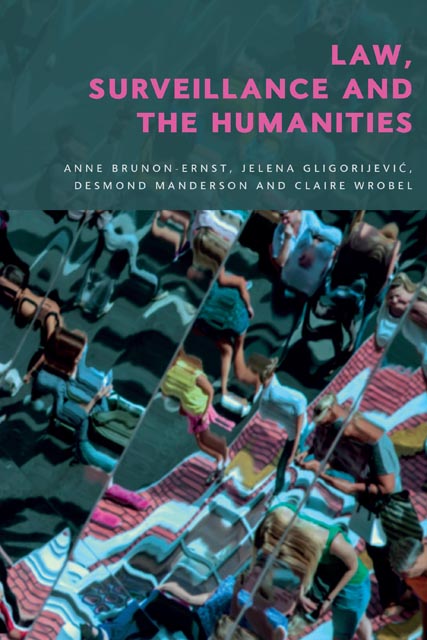3 - Surveillance, Utopia and Satire in Eighteenth-Century British Literature
Published online by Cambridge University Press: 18 November 2023
Summary
I. Introduction
In book IV of Gulliver's Travels, Gulliver finds himself among the wise horses, the Houyhnhnms, and is taken by their rational approach to life, adopting their mode of life, as much as, shall we say, is humanly possible. Gulliver decides to submit to the rule of the Houyhnhnms, although the horses execrate Yahoos like himself and dream of exterminating them. In doing this, he separates himself willingly from human beings and becomes enslaved to the wise horses:
I had not yet been a Year in this Country, before I contracted such a Love and Veneration for the Inhabitants, that I entered on a firm Resolution never to return to human Kind, but to pass the rest of my Life among these admirable Houyhnhnms in the Contemplation and Practice of every Virtue; where I could have no Example or Incitement to Vice.
The passions (Love, Veneration) which Gulliver experiences determine his decision to remain among the horses, which is further justified by the promise of the contemplation of virtue and the absence of all vices. The structure of the episode suggests, on Gulliver's part, a willing submission to forces of control, an acquiescence to being ruled, a desire to be part of the Houyhnhnms’ world. While at first Gulliver admits not to have felt the awe which characterises the Yahoos’ relationship to the Houyhnhnms, it eventually grew upon him, ‘and was mingled with a respectful Love and Gratitude, that they would condescend to distinguish me from the rest of my Species’.
In his portrayal of Gulliver's predicament among the Houyhnhnms, Swift foreshadows modern forms of control. The structure whereby our passions lead us into restraint, perhaps even to a desire for subjection, is characteristic of certain forms of domination. As Philippe Sabot notes in the previous chapter, Bernard Harcourt has argued that our desires and passions can enslave us. Unlike what Orwell had described in Nineteen Eighty-Four, modern society has mastered individuals and populations by means of their passions and interests, and has ensnared them. We willingly deliver ourselves to surveillance technologies, in particular to the digital world, and we have come to accept forms of control exerted by powers over which we have no influence. Like Gulliver, we agree to certain types of surveillance which use our passions rather than attempt to suppress them. For the most part, Harcourt argues, and just like Gulliver, we surrender willingly.
- Type
- Chapter
- Information
- Law, Surveillance and the Humanities , pp. 43 - 60Publisher: Edinburgh University PressPrint publication year: 2023



